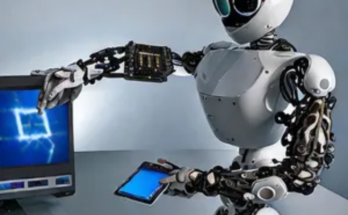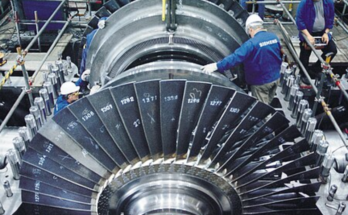What does technology, in fact, represent when you hear it on a daily basis? What does it include? How has it evolved? But would this be like now, and what might it look like in the future? The following article will look into the definition, development, consequences, and further queries on technology.
What is Technology?
An Appropriate Organizational Application of Knowledge
Technology, therefore, is the practical use of knowledge in tools, skills, methods and processes to achieve useful objectives. This range covers such items as pencils and paper clips in offices and industries, complex forms like communication systems, and artificial intelligence. Technologically, therefore, it is the methods and systems by which humanity enlightens, empowers, protects, sustains and improves itself.
Technology Versus Science
Therefore, distinguishing between technology and science is very important. Though these two are often used interchangeably, they are, in fact, closely related but distinct areas of human endeavour—the study of structures, forces or the natural physical world by observation and experimentation, according to science. The main emphasis is on human knowledge acquisition. Technology uses scientific information and interacts with it to arrive at a resolution to societal issues. The purpose of desecration is to improve the quality of life of humans.
Technological advancement throughout the Centuries
Stone Age tools and implements to cooperate with the work of millions.
Technology can also be used to subdivide human history into different eras, as suggested by the following text. In the Early Stone Age, people only had stones or sticks or whatever else they could use as tools. People during the ages of Bronze and Iron found metallurgic tools – that was a big progress in technology. Extrapolating things as they are now and assuming this will continue to happen in the Modern Age, inventions such as the printing press, the steam engine and other innovations are responsible for delivering the steady progress of founding new technological advancements in very similar ways, but at increasingly faster rates, as we are living in today’s Information Age.
Technology Today – Everywhere, Expanding, Everywhere
Please open your eyes and take a look around any large metropolitan area or even look up at the sky: technology is literally present in the buildings, our pockets, our routers, and the stars. Technology is quite evident; it has infiltrated society and continues to be part of people’s lives today. There remains a clearly identifiable and rapidly escalating trend of speed and spread of technology within society. Existing technologies, on the other hand, advance further, penetrate societies, and even extend to the far corners of the global world.
It discusses the Advantages and Disadvantages of modern technology and its effect on Human Life.
Benefits, Risks, Pros & Cons
It has encompassed human life in many other directions and produced so many advantages and disadvantages simultaneously. On the positive side, technology has enhanced health, connection, utilization, amenities, and quality of life for many across the globe. On the negative side, technology has also upset social interaction and focus, work opportunities, and privacy privileges, among other things. On the whole, all contributors concur that technology has both positive and negative effects, for which there tend to be tradeoffs with adequate analysis and research needed to enhance the positive impacts of the technology.
Information about Technology Forecasting – Current Developments and Opportunities
Supercomputing, AI, artificial neurons, neural networks, quantum computing, and more.
Technology has been remodelling the upcoming future through several trends, which were established as follows. This is true, and computer hardware such as AI and neural networks are making devices intelligent enough to think like humans. The art of building computers faster and (subjectively) more powerful than even the classic computers is quantum computing. The technologies that currently include Virtual reality (VR), Augmented reality (AR), and Brain-computer interfaces (BCI) intend to raise the curtain between human and their abilities. The future is unpredictable. However, technology will definitely bring pleasure and terror to the future.

Some of the most common questions people ask about Technology
What was the initial tool used by humans during their development?
I wanted to know about the type of technology that was considered primitive, which anthropologists identified as the first technology the human being adopted, what was thought to be that particular tool, and how and why that was the first tool developed. The first technology scientists believed in was the hand axe, which is a simple axe used for cutting, sharpening, digging, and hunting. The hand axe is also one of the oldest tools used by early humans, also known as the Oldowan tool, which was made by early humans in the Stone Age, 1.5 million years ago.
What change in human life has been impacted by today’s modern technologies?
Although it is a great fable and debatable point to say this, many historians believe that the 1440 invention of the printing press was the most influential. The printing press revolutionized education, science, religion, and politics and helped to set the stage for future technologies.
Are computers helpful or not helpful to people?
Technology has both effects, benefits, and advantages for humans, but it also has drawbacks and disadvantages. The majority of scholars support the theory that technology is a net positive for society, that is, it has more positive than negative effects on health, environment, employment opportunities, privacy, safety, social interaction, etc.; at the same time, they underline that the potential benefits can only be reaped if technology is used and developed appropriately in this context the question is what counts as ‘appropriate’.
Where is the human dependence on technology heading?
People’s reliance upon technology as a civilization is likely to rise over the next several decades as technology advances and technologies become more integral, recursive, and more than merely multiplicative. Some ideas, such as the technological singularity, posit that there is an age at which mastery of technology exceeds man. The enhancement of human supervisory control of technologies is significant and cannot be dispatched.
Can we come up with an ethical framework for future technologies?
Indeed, ethical principles that would be invented in order to define the destiny of future technologies will be necessary. Ideas such as responsible innovation are laid on the principles of incorporating the right moral values, such as responsibility, safety, accountability, fairness and more, into the generation, development, and management of emergent science and technologies. A number of groups are dedicated to envisioning and defining ethical solutions to the potential of human technology.
Conclusion
It was simply a stone in the time of the stone era to help the early man and has become a tool that supports every part of the life of the modern man. The future experiences talk of more enhanced innovation, hence bringing about these advantages as well as other challenges. But if the technology is approached at a stage beyond the concept, there is a way to make its progress fit human needs and implement it in a way that is ethically, responsibly and sustainably. The future, therefore, as depicted here, stands as a blank slate, characterized by expectations and concerns more or less revolving around humans and their technologies.



